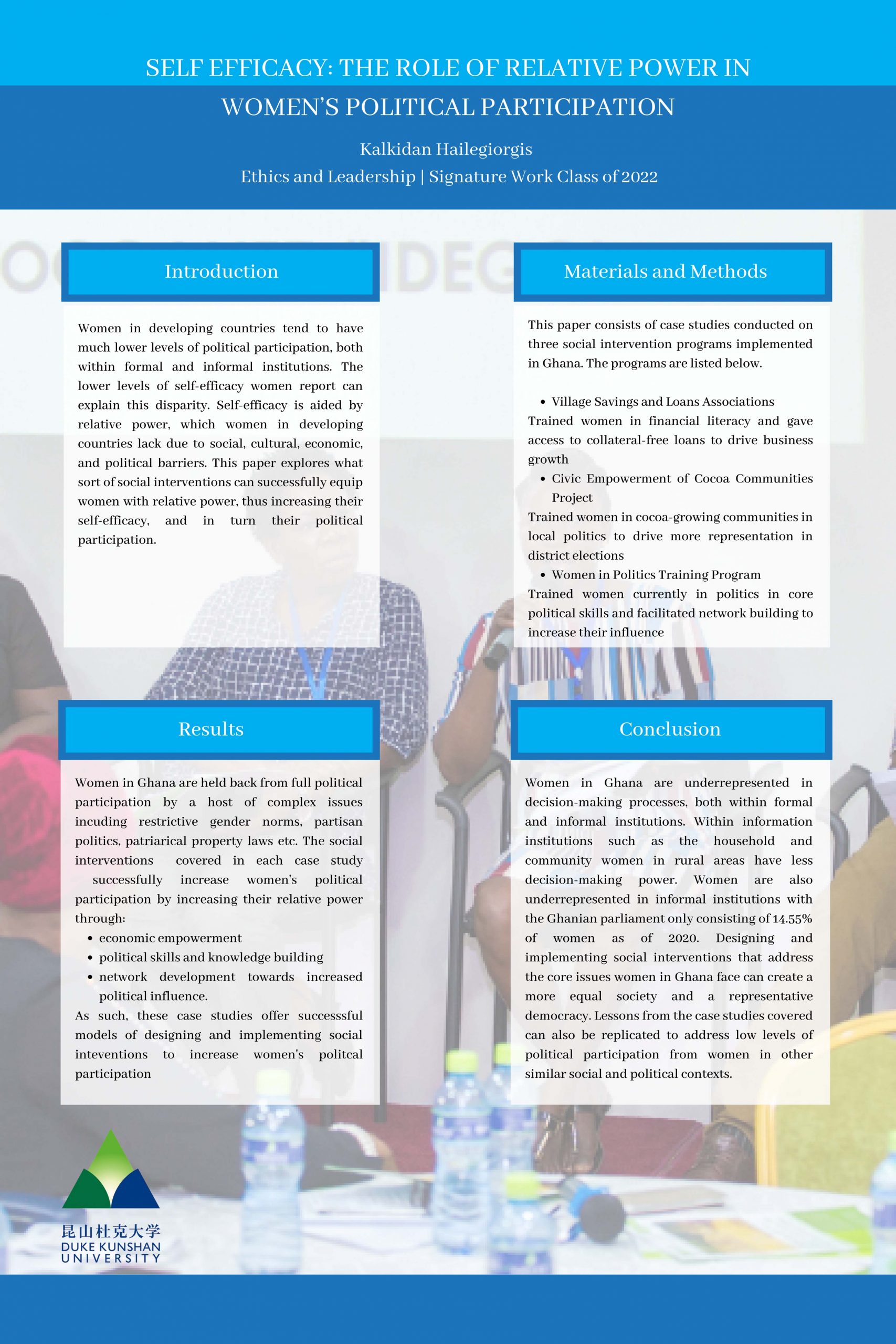Name
Kalkidan Hailegiorgis
Major
Ethics and Leadership, Public Policy
Class
2022
About
Kali Hailegiorgis is a senior majoring in Ethics and Leadership with a track in Public Policy. Throughout her academic career at DKU she has been interested in learning about power dynamics in social structures and how to build inclusive and representative systems. As such, her signature work project explores how to create a more gender-equal society and democracy through women’s empowerment. Outside of school, Kali has built a career in supporting impact-led start-up businesses. She currently works at a venture capital firm working to make capital accessible to underrepresented founders. Upon graduating from DKU, she plans to pursue her MBA and a Masters degree in Social Psychology.


